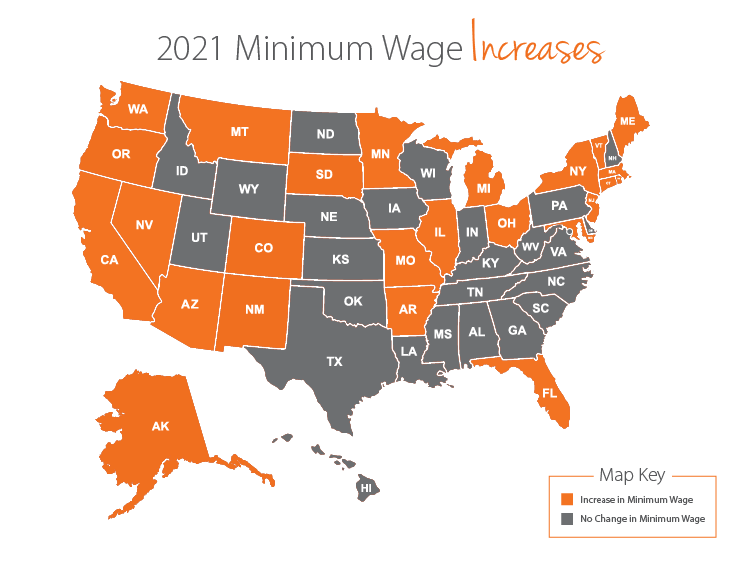How Many Hours Work Legally In New Zealand and Foreign Students
 |
| How Many Hours In A Week Can You Work Legally In New Zealand? Photo KnowInsiders |
What activities are 'work' in New Zealand?
There is no magic formula as to what is ‘work’. Work may include any activity where there are; constraints on the freedom of an employee, responsibilities placed on an employee, and / or there is a benefit to the employer. Generally, an activity will be work if it is “an integral part of the principal activity”.
Examples of activity considered to be ‘work’ include (but are not limited to) time spent in:
after hours team meetings
opening and closing businesses
cleaning and tidying up
on-the-job training
product familiarisation.
How many hours in a week can you work legally in New Zealand?
Employment agreements must fix the maximum number of hours to be worked by the employee at not more than 40 hours per week (not including overtime) unless the employer and employee agree otherwise. If the maximum number of hours (not including overtime) are less than 40, the employer and employee must try to fix the hours so they are worked on no more than five days of the week.
How many hours straight can an employer make you work?
In general, your employer cannot schedule you to work more than eight (8) hours in a single workday or more than forty (40) hours in a single work week without overtime.
Can you work 7 days straight?
California law provides that employees are entitled to one day’s rest in seven and that no employer shall “cause” an employee to work more than six days in seven. … One employee had worked seven consecutive days three times during his employment; the other employee had once worked seven consecutive days.
| Can I work 7 days a week if I want to? Employers can get permission from the Department of Labor to work their employees 7 days a week, but they can only do that a maximum of 8 weeks a year. … The Department of Labor also enforces the law on behalf of employees. Can you work with no days off? California law also says that an employer can’t “cause” an employee to go without the day of rest, and the state high court weighed in on what “cause” means. “The court essentially said that the employer isn’t going to be liable simply by allowing an employee to choose not to take the day of rest,” Rappaport said. Is it legal to work 50 hours a week? Your employer can’t make you work more than 48 hours a week on average. It doesn’t matter what your contract says or if you don’t have a written contract. If you want to work more than 48 hours a week, you can sign an agreement to opt out of the maximum weekly working time limit. How many 12 hour shifts can I work in a row? four 12“An employer should give an employee enough breaks to make sure their health and safety isn’t at risk if that work is ‘monotonous’ (eg work on a production line).” Secondly, the law stating that you may not work more than 48 hours a week, which would suggest no more than four 12-hour shifts in a row. |
What is the longest shift you can legally work?
The Fair Labor Standards Act (FLSA) states that any work over 40 hours in a 168 hour period is counted as overtime, since the average American work week is 40 hours – that’s eight hours per day for five days a week.
Types of work in New Zealand
Full-time work
Full-time work usually means a person works 40 hours a week, but could mean working between 30 and 40 hours.
Full-time employees sometimes work shifts, and may work outside of normal business hours. These shifts may be set hours, or change from week to week.
Part-time work
Part-time work means a person works a set number of hours each week, which can range from a few to around 30 hours.
Part-time work is a good option if you have family members to look after, are studying or have a main job with irregular hours.
Casual work
Casual workers are usually hired for one-off business needs or ongoing, irregular work. For example, a retail store may need extra help over the Christmas period and hire some casual staff for the month of December.
Casual work can lead to full-time work and is a good way to meet people in industries you want to work in.
Contractor or freelance work
Contractors or freelancers are similar to casual staff, but are usually hired to do a particular piece of work. They often have specialist skills that an organisation needs for specific projects.
Contractors can be self-employed, or work through an agency or business.
Contractors may work part-time or full-time hours for a fixed period of time.
Self-employment
Self-employment is common in a wide range of industries and occupations in New Zealand. For example, courier drivers, plumbers and accountants are often self-employed.
Self-employed workers may be contracted to work for different organisations, or have their own business and employ other staff.
Working for yourself
Portfolio work
Portfolio work means working for different employers in two or more part-time roles. This can include contract or freelance work. Together, these jobs can add up to full-time work.
The work could be in quite different fields.
Building a portfolio career
Seasonal work
Seasonal work can only be carried out at certain times of the year.
Seasonal work is usually on farms and in forests, orchards and market gardens.
Seasonal workers may need to move around the country to find jobs.
Seasonal Jobs in NZ website - search for seasonal work opportunities by region
How many hours can international students work in New Zealand - working while studying?
Can I work in New Zealand while I study?
When you are in New Zealand on a student visa, full-time students can usually work up to 20 hours a week during the academic year. And you can work up to 40 hours a week during the summer break. This applies if you are a high school, polytechnic or university student. There is one exception: research master’s and PhD students can work 40 hours a week all year round.
Just remember, always check your official student visa conditions. This shows if (and when) you can work. Also, it tells you what work you can (and cannot) do. You can find out more about working on a student visa through the New Zealand Immigration. Check your student visa – it will show if (and when) you are allowed to work. You can find out more about working on a student visa on Education New Zealand's NauMai NZ website.
Wage for foreign students
You will be paid at least the minimum wage of NZ$18.90 an hour, though you may earn more than this. You will also be paid for annual and public holidays, and for rest breaks.
Will foreign students pay tax?
You will pay tax on what you earn. The current tax rate is 10.5% if you earn less than NZ$14,000 a year. Before you start working you need to get an IRD number from New Zealand’s tax department, Inland Revenue. You can apply for a number online.
How can foreign students find part-time work?
Your education provider may be able to help you find work – talk to student support services.
You can also find work through Student Job Search, a national organisation that helps students find part-time work throughout New Zealand.
Many part-time jobs are also advertised on the job-vacancy websites Trade Me and Seek.
What part-time jobs can international students get?
International students do all kinds of part-time jobs, from babysitting to working in their education provider’s library. The jobs you are most likely to find include:
Retail sales assistant: Many Kiwi stores offer part-time work to students. You will help customers choose products and take payment from them, and also deal with stock and cleaning. Most New Zealand stores close by 6pm, but you may have to work on Saturday and Sunday.
Seasonal worker: Seasonal work is available in orchards and vineyards harvesting and preparing fruit and vegetables for sale. You don’t need any particular skills to be a seasonal worker, which is a popular job for students over the summer break.
Supermarket assistant: Supermarkets provide employment to people from many different countries and they often employ students to work on weekends and in the evening. You can do a range of jobs from stacking shelves to working on the checkout.
Bartender: You need to be 18 to become a bartender. You’ll also need excellent English language skills and to enjoy talking to strangers. Bartending is usually an evening job and you may not finish till after midnight.
Waiter/waitress: As international student, you can work in the hospitality industry. It’s a good job because it allows for flexible hours. You do need to speak English well.
Barista: New Zealand is well-known for its excellent coffee culture. Baristas are coffee experts. It’s a great job if you don’t mind an early start to your day.
Cafe or restaurant cook: Do you have a love for cooking, or maybe you have experience working in a kitchen in your home country? Try finding a job as a cook at a local restaurant. You might even get to work with people from your home country!
Kitchenhand: Working as a kitchenhand means you wash dishes or do simple food preparation. It’s hard work, but you gain skills in the kitchen.
Seasonal worker/fruit picking: Seasonal work is available throughout New Zealand. From vineyards to orchards. You don’t need any special skills to be a seasonal worker. So, it’s great to do over the summer break. Just be prepared for hard work!
Call centre agent: Working in a call centre requires good English skills (IELTS can help with this). It is flexible work and you often work alongside Kiwis and other international
What do New Zealand employers look for?
When you are trying to find a new job as international student, it is good to know what employers are looking for.
English competency
-
Employers look for English language proficiency in listening and speaking. For some jobs, writing and reading is important, too. Not all jobs require a very high band score in IELTS.
-
Working in New Zealand is an excellent way to pick up language that is more career focused. And you get exposure to the New Zealand workplace and culture. When you apply for your first job, the employer may be comparing your levels of English to that of a native speaker. With IELTS you can show you have the proficiency level you need.
Work experience
-
It might help if you have some work experience on your CV, especially if it’s related to the job you’re applying for. So, if you have worked in a kitchen in your home country, you might find it easier to get a job as a kitchenhand in New Zealand.
-
If you have limited work experience, you could also consider volunteering in the New Zealand community. That way, you gain experience and build important networks with locals.
Knowledge
-
You should be able to describe and talk about the knowledge you gained during your studies or previous employment.
-
Show how your studies are relevant to the job and how it will add value to the organisation.
-
Good grades always help, so make sure you keep focusing focus on your studies.
What is a good salary in NZ?Men receive an average salary of 95,171 NZD. Women receive a salary of 70,602 NZD. The most paid careers are Engineers & Technicians III with average income 127,600 NZD and Management & Business with income 114,716 NZD. |
 How to Be More Confident in Life: At Work, School and Speaking How to Be More Confident in Life: At Work, School and Speaking Confidence is one of the most important characters that everybody must have. How to become more confident in everyday life: School, work, piblic speaking, etc. |
 Multiple Solutions for Health Workforce Shortage Multiple Solutions for Health Workforce Shortage The healthcare system and workforce have escalated significantly with Covid-19 pandemic. |
 New Policy in the US in 2021: Half of U.S states will increase minimum wage New Policy in the US in 2021: Half of U.S states will increase minimum wage New U.S laws in 2021: This year, half of U.S states will increase their minimum wage some by pennies, others by a dollar or more. |
























